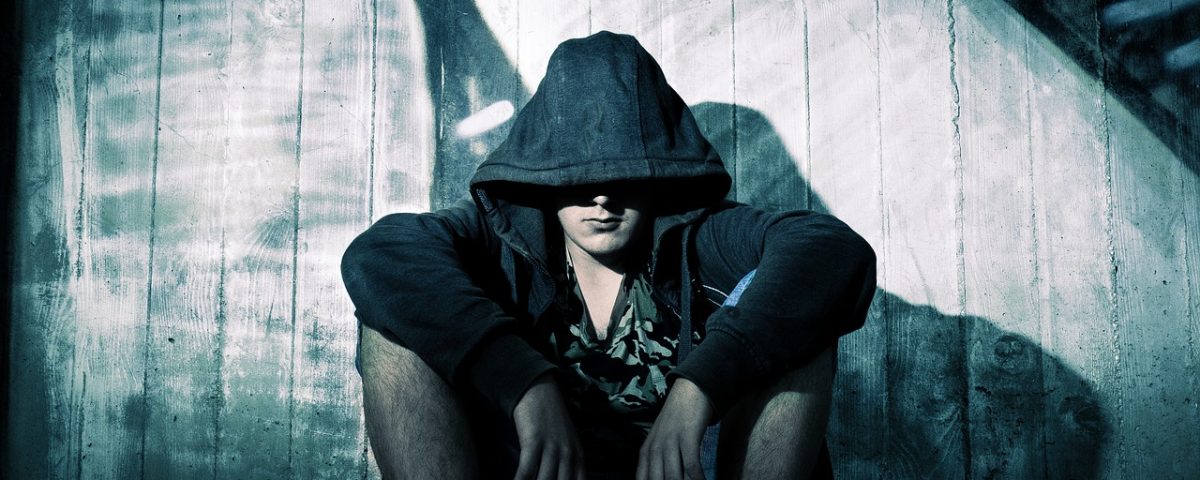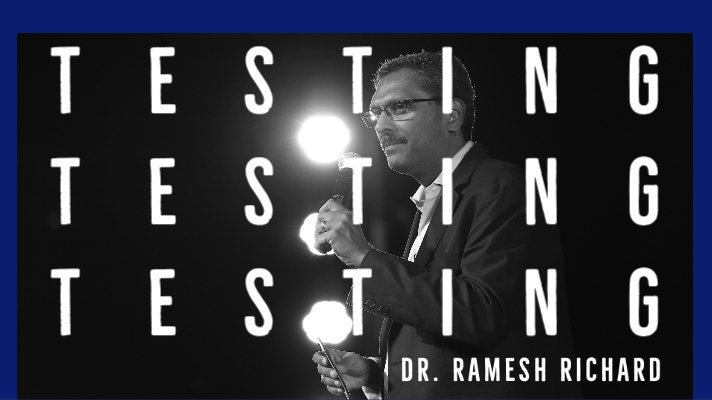
The Art of Giving Tough Feedback In The Church
October 11, 2018
Four Things That Shouldn’t Drive Church Growth
October 18, 2018On Wearing Masks In Ministry

This article appeared originally on Claire Muster’s blog.
I have been in Christian ministry for 25 years. And in common with practically everyone else alive, I have worn masks. Not literally, of course. At times, a mask has been the means of self-preservation, at others a ministry preserver – and even an act of generosity and service. In other words, masks can and should have their place. To some extent. But they are also detrimental to psychological wellbeing and community life. They conceal rather than reveal. They can do even more damage to the wearer than they do to those who only encounter the external presentation.
I found myself thinking a great deal about this as I wrote my book on the experience of depression in ministry. I realised it was a recurring theme and that I was never going to improve until I faced up to what I had instinctively done since before even becoming a teenager, and then dealt with it. So here are some of those thoughts from the early pages of the book, taking us back to the glory days of ancient Greek theatre…
—
Imagine some great theatre, a monumental seashell carved out of a Mediterranean mountainside. At the base of this banked semicircle is the circular stage, backed by a great wall of doors, alcoves and openings on multiple levels, from which actors playing gods might intervene in the drama. All the main action takes place on the central stage, however. The genius of these buildings is that the sightlines and acoustics are perfect, despite being open to the elements. An entire audience can see and hear everything. Because all the actors wear identical clay masks, however, the one skill they never require is facial expression. Their movements are rigidly stylized as well. Instead, they must rely entirely on the script and their vocal skills to move audiences to tears or laughter. But this they consistently achieve.
The purpose of these masks was to focus an audience’s attention on the characters and not the actors bringing them to life. The effect, I suppose, is a bit like movie stars hidden by layers of prosthetics or digital animation. The mask also reminds the audience that this is make-believe; it is pretence; it is in fact a lie. All acting is lying. But here is the great paradox of drama: if these lies are acted convincingly, truth (whether about reality or relationships) gets conveyed powerfully.
We are perfectly familiar with this, and, in our entertainment-obsessed world, we applaud those who can pull off the widest range of parts.
But should we always be so impressed? The ancient Greek word for actor was hypocritēs (ὑποκρῐτής), which, at first, only implied someone who explained or interpreted something. But by New Testament times, it was more negative. It suggested someone who was untrustworthy. They pretended to be one thing while underneath being something else; they presented a good front to mask their reality.
Of course, it needs to be recognized that this is not always negative. Temporary masks have their place, and nearly all of us make use of them. On occasion, it may even be right to use them. We really shouldn’t blurt out every thought that pops into our heads. That usually does more harm than good. Self- control is an important virtue, and so this type of mask is as much for others’ protection as anything else.
At other times, it is neither appropriate nor necessary for those around us to be aware of every vulnerability or anxiety. A mask is thus a form of protection, necessary to shield emotional wounds from being aggravated, or from being exposed at an inappropriate moment. It is an act, in some ways – ‘I’m fine,’ we say – a pretense that all is well. That is not a lie as such, but an act of self-defense. As one good friend remarked to me, ‘fine’ can actually serve as an acronym, standing for ‘Feelings Inside Not Expressed!’. It is an understandable mask, and if we never made use of it, we would probably never escape those after-church conversations that already seem interminable enough.
MINISTRY MASKS
This mask is particularly important for those in Christian ministry. As we seek to pastor and love others, especially the vulnerable, there are times when we must swallow our pride or irritation, ignore our own needs or pressing concerns, for the sake of the urgent or important. We must show consistency and integrity, of course. But when I climb into a pulpit, I may be feeling 1,001 different things, most of which would be irrelevant, inappropriate or unhelpful to mention.We have a duty to teach what is true and healthy, even if we might wish to be miles away. We act out of Christian duty, which invariably conflicts with our emotions and passions. This is true even in normal family life, where it might be necessary to park a discussion or argument because of something more pressing (such as friends coming for a meal). Unsurprisingly, it is necessary in upfront ministry as well. This is not avoidance, but finding the right moment (unless, of course, we don’t return to it).
In the strictest sense, that could be defined as hypocrisy. We are pretending. We are acting. But because of the complexity of human nature, there is a sense in which none of us can avoid being hypocritical to some degree. None of us ever has perfectly aligned motives or desires. Even Jesus found himself in great conflict in the Garden of Gethsemane – his deepest fears were militating against his determination to do his Father’s will (Matthew 26:36–46).
What matters, I suppose, is how regularly this happens when doing our duty. No-one can be expected to hold in constant balance their duty and passions, their beliefs, feelings and actions, their words and deeds. Being ‘out of sync’ is not hypocrisy – only the pretense of always being ‘in sync’ is. And this is where we begin to home in on what Jesus was so critical of. He lambasted the Pharisees for their claims to perfection and their subsequent self-righteous contempt for others:
You are like whitewashed tombs, which look beautiful on the outside but on the inside are full of the bones of the dead and everything unclean. In the same way, on the outside you appear to people as righteous but on the inside you are full of hypocrisy and wickedness. (Matthew 23:27–28)
WHEN THE MASK BECOMES A HABIT
The issue is how honest we are about our weakness and flaws. Self-defense masks are like that. They are not Pharisaical, they rarely claim perfection, nor do they make people self- righteous. The problem comes when wearing them becomes a habitual, or even permanent, way of being. This was what happened to me. Since childhood, I had developed self-defense habits that kept me going temporarily, but which proved unsustainable long-term. It was as if the ancient actor’s mask had become glued to my face. I played a part – of the approachable, sorted, though emotionally up and down, friend, and later pastor. So, for example, after I first mentioned my depression diagnosis in public (during a question and answer session at a church retreat), a friend came up to me in shock. She remarked that had she known there was a church staff member with this diagnosis, she would never have guessed it was me.
But this mask was artificial. It concealed reality and inhibited support. Nobody who’s ‘fine’ needs help . . . right? So the mask inevitably started cracking, revealing that things really were not right.
 ABOUT THE AUTHOR: Mark Meynell is Europe & Caribbean Director for Langham Preaching (a programme of Langham Partnership), and a part-time Chaplain in Whitehall. He is married to Rachel and they have two (almost) grown up children, He is the author of a number of books on various subjects, and is currently working on his first novel. This excerpt is taken from When Darkness Seems My Closest Friend, published by IVP.
ABOUT THE AUTHOR: Mark Meynell is Europe & Caribbean Director for Langham Preaching (a programme of Langham Partnership), and a part-time Chaplain in Whitehall. He is married to Rachel and they have two (almost) grown up children, He is the author of a number of books on various subjects, and is currently working on his first novel. This excerpt is taken from When Darkness Seems My Closest Friend, published by IVP.


